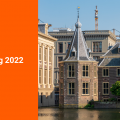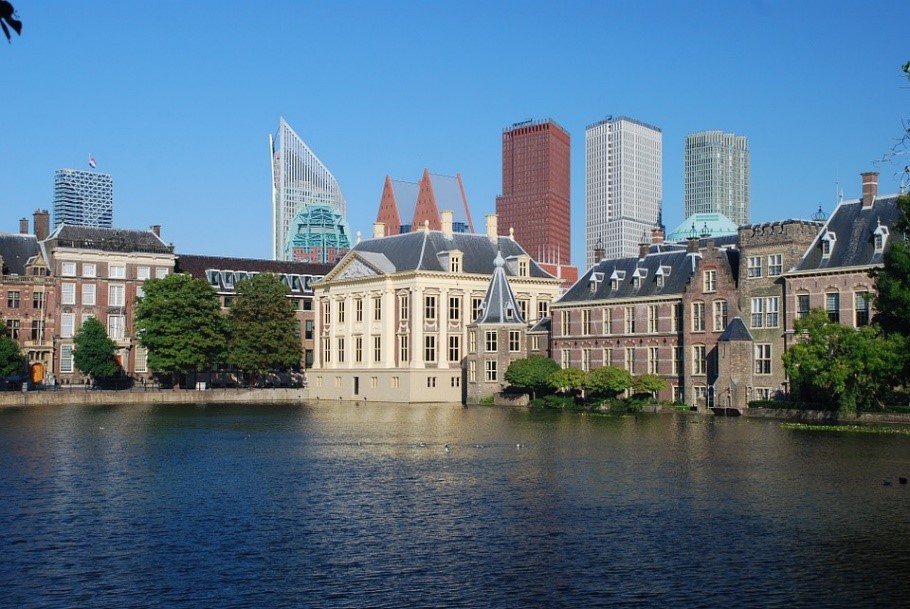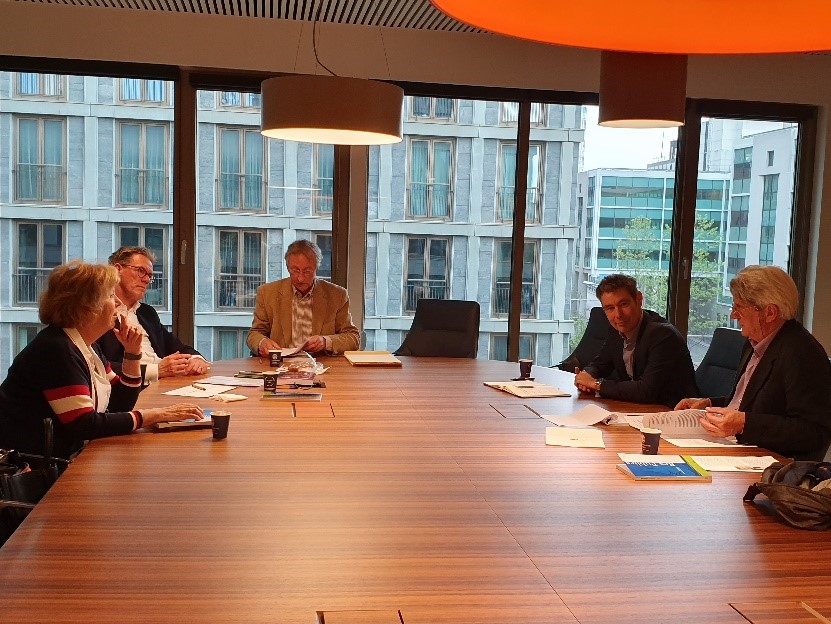
PA in crisis mode ensures more creativity
What do you do during corona time? Experiences of public affairs professionals in times of crisis
By Sybrig van Keep, Bas Lans and Erik van Venice
What is the effect of the corona crisis on the work of public affairs professional? Extra work, much more 'tele-lobby', a broader view of social issues. And a lot of work continues as usual. That is the picture we get from conversations with public affairs professionals from several large companies.
For some it is 'crisis management squared', others suddenly have more time for their regular work, depending on the crisis sensitivity of the sector.
"We have only been in one position in recent weeks: the crisis PA position," says Walter Annard of Rabobank. 'To help entrepreneurs and households through the crisis. We consult with the Ministry of Economic Affairs and Climate Policy and the regulators about arrangements for entrepreneurs and repayment breaks for mortgages and under what conditions we do this.'
At Rabobank it is 'crisis management squared'. And that means everyone puts all other work aside. It's the 'getting things done' attitude. Walter Annard notices this in the public-private partnership on setting up support schemes for entrepreneurs, with the Ministry of Economic Affairs and Climate Policy, but also with UWV, the Social Insurance Bank and the Tax Authorities. He is impressed by the government's attitude, focused on cooperation. "I hope that attitude continues."
Public affairs professionals in the crisis-sensitive financial sector are becoming more involved in corporate strategy. Logically, their customers are directly affected and the risks of the crisis are great.
Wouter Thalen of PFZW saw his work expand rapidly. He played a role in the crisis management team from the start of the crisis. His contribution: communication with other companies in the pension sector and the pension umbrella organization, answering questions from the supervisor, thinking together about the steps to be taken and communication to employees and board members. He paid a lot of attention to the communication and reputation of the fund.
Wouter Thalen: 'We also looked at how PFZW could be more flexible towards constituent employers in meeting their contribution obligations. In this way we move along with the challenges that companies and institutions suddenly face.'
A time of both-and
The corona crisis immediately provided Jacco van der Tak and his team with a significant package of work. He has just started his new job as director of communications and corporate affairs at the Dutch Railways. He has daily contact with the board of directors about the impact of the crisis on services, the financial consequences for the company and the discussions about this with stakeholders in the public transport sector and with The Hague. 'How do we ensure that public transport remains a logical choice for travelers, safe and responsible? That determines NS's agenda," says Van der Tak.
In addition, internal communication is essential. Jacco van der Tak: 'To ensure interconnectedness within the company, we take all kinds of initiatives: webinars with members of the board, card-sending campaigns for colleagues.'
It is a time of new creativity. Rail colleagues who normally overhaul trains are now making power supplies for ventilators. Managers call colleagues throughout the company to show commitment to their work. For Jacco van der Tak, that means ten phone calls a day.
Now that the crisis is lasting longer, he is also taking on other files. 'It is now a time of both-and. And tackle the crisis and ensure that normal decision-making continues.'
A lot of things just keep marching on
At IBM's Mark Esseboom, all current work continues. Consultations from governments, suggestions to departments. Proposals from the EU to which our response is requested. Comments on documents from the umbrella organizations. All those agreements have remained in place. Only now converted to video conferences.
Now that all physical meetings have been canceled, Tim Stok from RELX is using the freed up time even more for business as usual. He works on position papers and consultations on data protection, anti-money laundering, artificial intelligence.
Public affairs and the social role
Many new activities for the PA professionals we speak to have to do with the social role of companies. In the first weeks of the crisis, IBM offered free help in the form of expertise and tools – especially to customers who were preoccupied with crisis measures, says Mark Esseboom.
For example, IBM helped the Rotterdam center where the ICU bed capacity was distributed. Esseboom: 'That is work outside traditional advocacy. That is different, more in a team mode with equal roles. I am aware that a government then thinks: once they are in, I can't get rid of them. But from our side it is a sincere offer to help.”
To help policymakers and scientists around the world in the fight against corona, RELX subsidiary Elsevier has made all scientific articles related to Covid-19 publicly available, says Tim Stok. 'Many people were grateful for the fact that we made high-quality science freely available so quickly. I also feel that there is now more appreciation for good scientific information. The experts are taking over again.'
Of course, the social initiatives help with future advocacy. But Tim Stok also calls it a moral duty, especially for large companies, to put social interests above economic interests.
This is part 1 of a short series about public affairs in the corona crisis. Do you have completely different experiences? Let us know.
Sybrig van Keep and Bas Lans work at communications agency De Issuemakers. Erik van Venice is a trainer and advisor in the field of public affairs.
With the cooperation of Noor Broeders from De Issuemakers.





